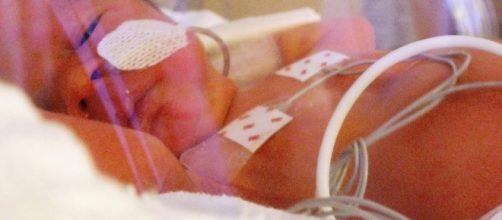Racial Inequalities or discrimination is nothing new in our society today. However, a group of researchers from the Stanford University School of Medicine led by Dr. Jochen Profit uncovered an alarming social issue regarding the disparate treatment of premature babies in Neonatal Intensive Care Units (NICU) in the state of California.
In the study published in the journal Pediatrics on Monday, researchers suggested that white and Asian babies in neonatal intensive care units in California receive better care and treatment compared to the infants of other races.
In order to show that racial inequalities exist in infant medical care, experts studied the care and health outcomes of 18,616 babies who were born prematurely between 2010 and 2014 in 134 hospitals all over the state.
Interesting read by @cat_ho. #NICU
— Joe Lindahl (@NANN_JoeL) August 29, 2017
Babies’ race affects quality of care in CA neonatal intensive care, study sayshttps://t.co/LkStrt8YQU
Quality of care among Californian NICUs found ‘troubling’
For the assessment of the babies’ NICU care, the experts reportedly used a scoring system called Baby-MONITOR. According to Reuters, the system noted several things including breastfeeding, the babies’ eye examination, steroid use for healthy lungs and the infants’ exposure to infections.
Moreover, the experts also took other factors into consideration. These include the maternal care prior to childbirth, the babies’ general health in the NICU and the mothers’ length of pregnancy.
Unfortunately, the researchers found that the scoring system for the quality of care in NICUs was “troubling,” Romper noted. The study said, “Significant racial and/or ethnic differences in quality between and within NICUs are a troubling finding.”
In the study, experts found that African-American babies received “slightly lower scores.” Those infants identified under the races of Hispanics, American-Indian and Alaska Natives, on the other hand, scored “significantly lower” compared to their Asian and white counterparts.
African-American babies grow faster
The researchers, however, did not only highlight the racial and ethnicity gap in California’s health care. Despite the fact that the quality of care received by African-American babies is lower, the study revealed that when it comes to growth, these babies have an advantage as they tend to grow faster.
They were also less likely to suffer chronic lung disease and a collapsed lung, SF Gate revealed.
‘Unconscious social biases’
Even though there are several factors to consider when it comes to the inequalities in the quality of health or medical care, the fact can’t be denied that this long-standing disparity also affects the neonatal care. Dr. Jochen Profit even said that the study aimed to lessen the “unconscious social biases” in the NICUs.
The senior author of the research also added that they are encouraging NICU caregivers to boost their efforts in delivering the best possible care to patients so these disparities could be eliminated. Profit also stressed the importance of “individualize care” for NICUs, wherein hospitals should address the issues concerning the population they serve. For example, those who serve a large proportion of Hispanic families need to employ Spanish-speaking caregivers to minimize the issues on language barriers, Scope reported.


